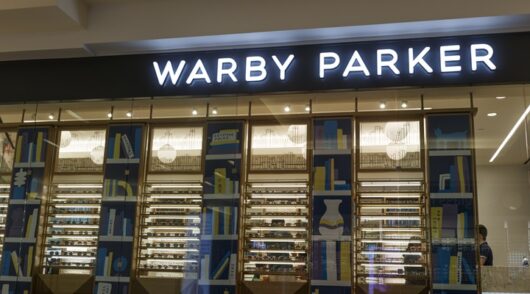Growing engagement with millennials and reduced discounting has boosted profit for New York-based fashion group Tapestry.
Tapestry has reported US$122.3 million in net income during the first quarter of – a significant improvement over the $17.7 million net loss of the same period last year.
Gross profit also increased over the period from $763 million to $935 million, while gross margin rose from 59.2 per cent to 67.7 per cent.
These results were driven by continued growth at Coach, which saw comparable store sales rise 4 per cent, led by strong performance in digital.
Coach’s gross profit in the quarter was US$680 million, up from US$632 million in the previous corresponding period, with gross margin reaching 70.8 per cent.
GlobalData Retail MD Neil Saunders noted that the luxury bag brand is gaining traction with younger millennial customers – pushing sales volumes for higher priced, higher margin products.
“A few years ago, Coach was perceived as a largely feminine brand, but this is now becoming more balanced and the label is seen favourably by men,” Saunders said.
“This gives Coach an opportunity to develop a US$1 billion men’s business over the next couple of years.”
The Kate Spade brand continued to be integrated into the group, and is developing a clearer brand identity under creative director Nicola Glass, according to Saunders.
A comparable sales decline of 5 per cent appears alarming, though it is largely a result of decreased discounting and promotions, resulting in an uplift in gross margins and underlying profit of 63.8 per cent and US$208 million respectively.
“Despite good numbers from the two other brands, Stuart Weitzman continued its run of poor performance this quarter,” Saunders said.
Tapestry CEO Victor Luis said that, while Stuart Weitzman results were negatively impacted by development and delivery delays, the brand remains on track to achieve profitable sales growth across the holiday quarter.
Luis also announced that Tapestry has formed an agreement to acquire the Stuart Weitzman business in Australia after finalising the buyback of the business in Southern China.
The company announced its plan to buy back its Coach business in Australia and New Zealand from the local distributor in February.
Luis at the time described the move as “an important business development initiative” and part of a plan by the group to assume greater direct control over its international distribution.
Looking forward, the company expects revenues to increase at a single-digit rate of US$6.1-$6.2 billion for the full year.






